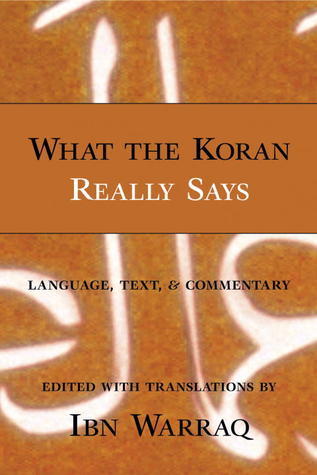What do you think?
Rate this book


600 pages, Hardcover
First published September 30, 2002
The "political" career of Ibn Warraq (a pseudonym for a former Muslim) is a good example. Ibn Warraq is on a mission to "expose" and attack the dangers of Islam. For his efforts, he, like Lewis, received an invitation to the White House to meet with high-ranking officials. Ibn Warraq probably takes his name from the courageous free thinker in classical Islam, Abu 'Isa Muhammad bin Harun bin Muhammad al-Warraq. But unlike the present-day Ibn Warraq, Abu 'Isa was a courageous freethinker who wrote refutations of more than one religion. Ibn Warraq claims to subscribe to secularism and freethinking, yet he objects to Islam only and aligns himself with Christian fundamentalism, which raises questions about the true thrust of his mission. Free thinking, in any religion and against all religions, should be encouraged although there is a difference between religious bigotry and enlightened freethinking. The latest two books by Ibn Warraq merely collect old writings by classical Orientalists. The more rigid and biased the Orientalists, the better for Warraq. Warraq himself has nothing original to say on the subject; he merely resuscitates the writings of those Orientalists who have been long discredited, such as Henri Lammens and Ernest Renan, among other less discredited Orientalists. Warraq rejects mainstream Orientalists, like W.M. Watt. He quotes Renan's famous Islam et la Science lecture approvingly: "To liberate the Muslim from his religion is the best service that one can render him." It is now acceptable to express such views in polite company.
Middle East Journal Vol 58, No. 1, Winter 2004